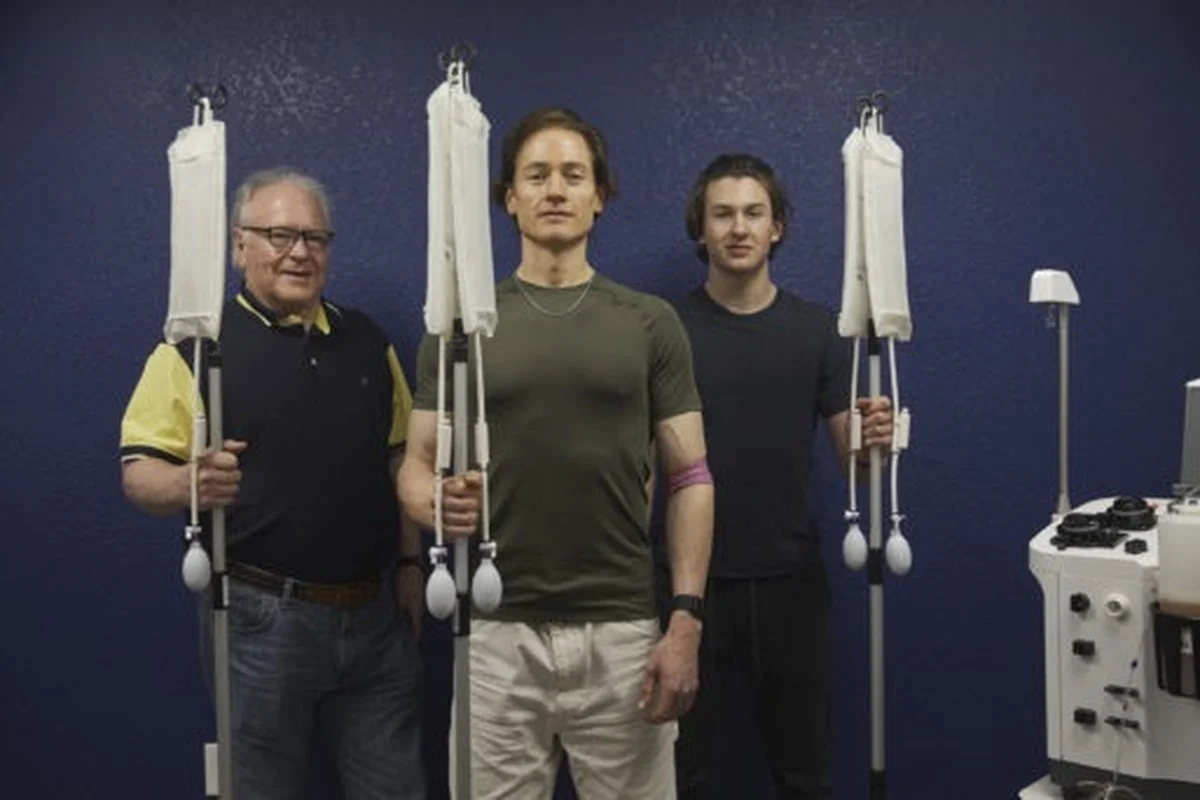08/01/2025
08/01/2025

NEW YORK, Jan 8: Jeff Bezos, Sam Altman, and Peter Thiel have already conquered the tech world, but now they're investing millions in a new battle: the quest for eternal youth. These tech billionaires are pouring vast sums of their fortunes into the race to extend life, fueling the growth of a $25 billion market for life-extending therapies.
OpenAI CEO Sam Altman, 39, and Amazon founder Jeff Bezos, 60, have made significant investments in longevity-focused companies. Altman has invested in Retro Biosciences, while Bezos has backed Altos Labs. Meanwhile, PayPal co-founder Peter Thiel, 57, donated $1 million to the Methuselah Foundation, a biomedical charity working to make "90 the new 50" by 2030.
However, the road to reversing aging is filled with obstacles. Researchers face regulatory hurdles, ethical challenges, and long-term funding concerns in their efforts to delay death and reprogram cells.
Methuselah Foundation co-founder and CEO David Gobel, a serial entrepreneur, started the foundation in 2001 after pondering the question: “What’s the most important thing I can do, make more money or make more health?” Thiel has been one of the foundation's earliest champions, with other high-profile figures, like Ethereum co-founder Vitalik Buterin, contributing over $13.6 million in 2021.
“We haven’t actually solicited for donations since maybe 2013,” said Gobel, 72. “I hate begging, and I figured that we needed to earn our way forward by results.”
The foundation's portfolio includes nine companies working on groundbreaking health technologies. For instance, Leucadia Therapeutics has developed a device to restore cerebrospinal fluid flow in the brain to help fight Alzheimer’s disease. X-Therma focuses on preserving organs for transplant using subzero technology. Additionally, Methuselah has partnered with NASA to explore ways to grow human tissue in labs and provide food for astronauts on extended missions.
One major goal for Gobel is bone marrow rejuvenation, which could have far-reaching effects on health. “If you can rejuvenate the bone marrow, you can rejuvenate anything,” Gobel says. “And if you can rejuvenate the blood, then the downstream effects are almost certain to be profoundly good.”
The process of bringing new longevity therapies to market is notoriously long and expensive. While tech companies can roll out new software products for relatively low costs, biotech ventures require years of research and millions of dollars in funding before reaching approval.
For example, the U.S. Food and Drug Administration (FDA) takes about 12 years to approve a new drug, while medical devices may take 3 to 7 years for approval. According to Gobel, the significant financial and time investments needed are a major barrier to progress.
Gobel acknowledges that the FDA’s shift away from animal testing could help speed up drug approval but notes that the agency has yet to update regulations to allow for the use of animal-free models. Moreover, the FDA does not currently recognize aging as a disease, meaning there is no approval pathway for anti-aging treatments. As a result, we may not see a life-extending pill in the near future.
“I think the next 20 years, there isn’t going to be a pill. Who knows after that?” says Gobel. “What I could imagine one day is that you get into a ‘Star Trek’ teleportation pod and it just remodels you. So I would say that would happen the earliest, 2060.”
The explosion of biotech start-ups focused on aging has raised important ethical questions. Altos Labs, which was backed by Bezos, aims to reverse aging by rejuvenating cells. Retro Biosciences, supported by Altman, focuses on cellular reprogramming and plasma-inspired therapeutics to extend life by a decade.
Dr. Joshua Chodosh, director of the Division of Geriatric Medicine and Palliative Care at NYU Grossman School of Medicine, points out that one major challenge is deciding when to intervene and who should be studied. "We know that there are certain therapeutics that might be helpful in someone who’s much older but potentially harmful in someone who’s much younger," Chodosh explains.
Another challenge is the narrow focus of current research, which often targets specific diseases or organs. “When we think about healthspan, it’s not just a single organ,” Chodosh says, referring to the years people can live in good health. “It’s much more integrated than that, through multiple, or even potentially all organs in the entire human body.”
Despite these challenges, some experts are skeptical about the potential for significant life expectancy gains in the near future. The average life expectancy in the U.S. was 77.5 years in 2022, and while it may increase slightly over the next few decades, many believe the greatest advancements in life expectancy may already be behind us.
Chodosh argues that improving environmental factors, such as reducing pollution, promoting healthier diets, encouraging physical activity, and improving sleep, are crucial to living longer, healthier lives. "A lot of our longevity success has been through environmental improvements [and] better safety," he says.


